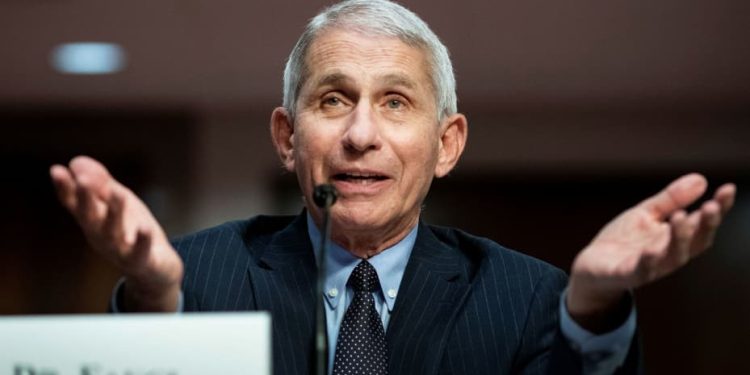Dr. Anthony Fauci, the prominent figure in the U.S. response to the coronavirus pandemic, is set to undergo extensive questioning regarding the virus’s origins and strategies for handling future widespread outbreaks. He will engage in back-to-back prolonged discussions with lawmakers, participating in a closed-door interview with the House select committee on COVID-19 on Monday and Tuesday, with each session anticipated to extend for at least seven hours.
Committee Chair Brad Wenstrup, R-Ohio, characterized the sessions as an “after-action review” focused on lessons learned, evaluating decisions made, acknowledging the challenges posed by COVID’s unknown nature and the learning process in understanding its impact on individuals.
“Dr. Fauci clearly was the scientific face of COVID during the pandemic and spokesperson under both administrations. … He might stay here in Washington, but we’re going home to our constituents, who want answers to a lot of things.”
Wenstrup, with a background spanning over three decades as a physician, expressed his eagerness to gather insights during these sessions that could contribute to his committee’s eventual bipartisan recommendations for managing future pandemics. Additionally, he articulated his intention to seek answers regarding political decisions made during the pandemic, particularly focusing on vaccine mandates, a topic he described as “egregious.”
“It’s like a politician saying, ‘You must get this vaccine or you’re fired from your job.’ And, you know, where’s the doctor? People want to have a conversation with their doctor. ‘Am I at risk? Why am I at risk? Why should I get the vaccine? What are the side effects of the vaccine?’” he explained.
The Ohio Republican further indicated his intent to inquire with Fauci about the controversy surrounding the origins of COVID-19, probing into the debate over whether it originated naturally or was developed in a Wuhan, China lab. Wenstrup posed questions such as, “Why were those who held a different perspective, suggesting it originated from a lab, dismissed?”; highlighting instances where individuals expressing such views were labeled as “crackpots” and “conspiracy theorists.”
“We have people saying, ‘Forget about the origins, it doesn’t matter. Let’s just move on.’ … You’ve got to be prepared. Just as you want to see if something may emerge from nature, which is a lot of the work that they were doing with gain of function. … I can understand that. But, at the same time, you know, the technology is there to create a virus, and where are they doing it? In Wuhan. So why are we ignoring that?”
Wenstrup’s committee has undertaken an inquiry into whether government officials, including Fauci, may have sought to suppress inquiries regarding the potential lab leak origin of the pandemic in Wuhan. Republicans allege that officials, including Fauci, favored the natural origin theory to shield China from scrutiny.
Throughout the pandemic, Fauci emerged as a divisive figure, facing criticism from those opposed to lockdowns, mask mandates, and vaccine requirements, while earning praise from those who supported the government’s actions.
On the Senate side, Sen. Rand Paul, a Kentucky Republican, has been a vocal critic of Fauci, accusing him of dishonesty about the origins of COVID. Paul recently drew attention to a February 2020 email from Fauci, revealing discussions with scientists expressing concerns about the virus possibly being created in a lab. Fauci, however, publicly maintained that the virus couldn’t have originated in the Chinese lab where U.S.-funded experiments occurred.
Wenstrup characterized the upcoming interview as more of a “roundtable,” with lawmakers from both sides posing questions. He expressed optimism that the committee’s final recommendations could be a bipartisan effort, emphasizing the goal of identifying effective strategies and areas for improvement in handling future pandemics. “At the end of the day, we want to just reveal what worked and what didn’t work and what we might do better in the future,” Wenstrup stated, drawing on his military background and emphasizing the importance of learning from the experience.
 Telegram is where we really talk. Don't miss out!
Telegram is where we really talk. Don't miss out!







